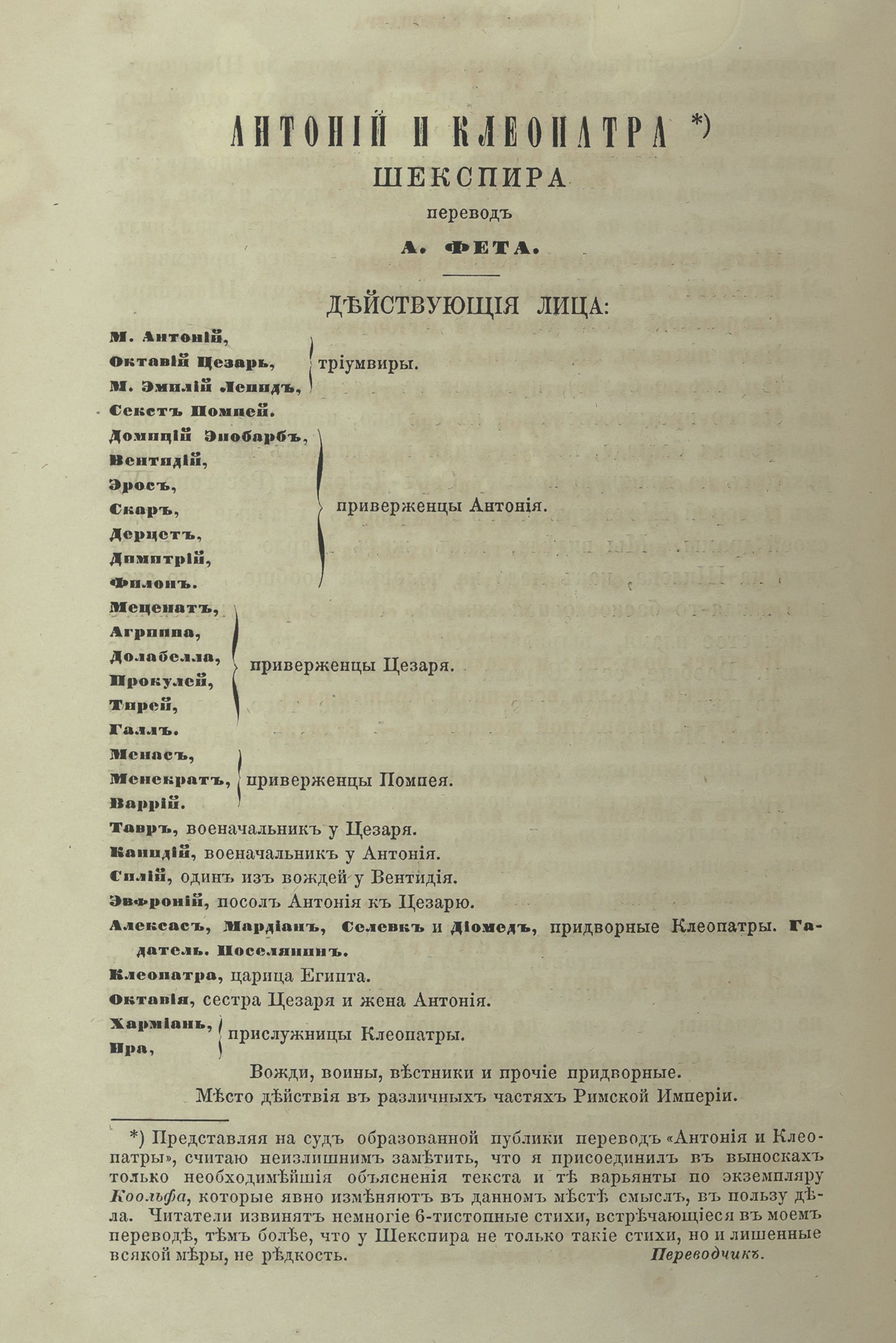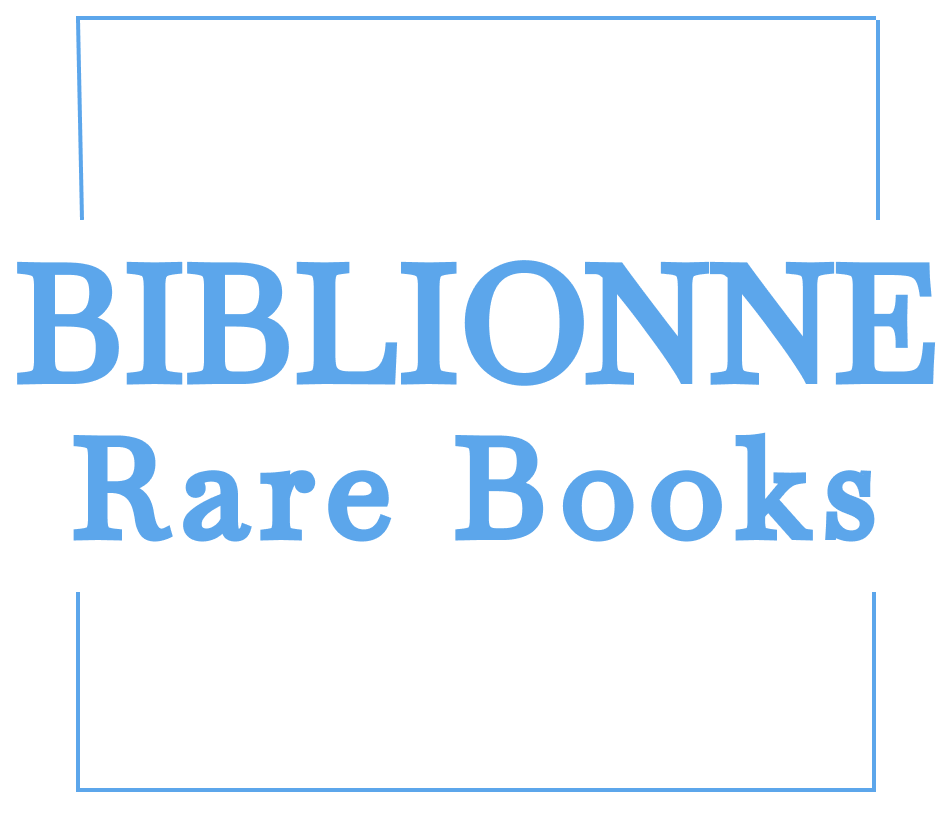Shakespeare, William
Anthony and Cleopatra. First publication of this translation by A. Fet.
Anthony and Cleopatra. First publication of this translation by A. Fet.
Couldn't load pickup availability
[Shakespeare, William] [Anthony and Cleopatra / Russian Word]. Antonii i Kleopatra / Russkoe Slovo. № II. February.
[Translation by A. Fet].
Sankt-Peterburg, Izd. Gr. Kushelevym-Bezborodko, v tip. Rumina i Komp., 1859.
8vo, [4], 338, 2, 33-154, 36, 25-30, 33-46, [6] pp.
In owner binding.
In good condition, spine and edges scuffed, dampstaining to some page margins, bookplate to endpaper, owner stamps to half-title and title, Moscow Higher Women’s Courses library stamp to title page and p. 175. Without p. 3–32 (part II), p. 37 (part III), p. 31–32 (attachment). The play 'Anthony and Cleopatra' remains complete and intact.
This edition features the first appearance of 'Antony and Cleopatra' translated by Afanasy Fet (pp. 54-208).
Afanasy Fet (1820-1892) was a renowned poet, memoirist, and a leading figure in the 'Parnassian' movement, which championed the ideals of 'pure' art. Fet's poetry focused on themes of nature and love, deliberately avoiding political and social issues. In addition to his lyrical works, Fet was a significant translator of German, French, English, Latin, and Polish literature. He devoted considerable time and effort to translating works by Schiller, Byron, Goethe, Schopenhauer, Musset, and others. His translations were known for their fidelity to the literal meaning and formal elements of the originals, a method that often drew criticism from his contemporaries. In 1883, Fet was awarded the prestigious Pushkin Prize for his translations of Horace (Russian Writers on Translation. An Anthology. Edited by Brian James Baer and Natalia Olshanskaya. London and New York, Routledge, 2014. p. 47).
Fet translated two of Shakespeare's plays: 'Antony and Cleopatra' and 'Julius Caesar'. These translations were subjects of debate with Ivan Turgenev, one of the great Russian writers of the 19th century. Fet also read his translation of 'Antony and Cleopatra' during a visit to Leo Tolstoy in November 1857, an encounter that profoundly impacted Tolstoy. Tolstoy noted in his diary: '[Fet] Read 'Antony and Cleopatra' and through conversation ignited in me a passion for art. I must start a drama in 'The Cossacks'. I can't sleep'. According to Tolstoy's notes, this meeting influenced his writing style in 'The Cossacks' novel.
Please be advised that certain books in our collection may require an export permit for international shipping. If you are interested in purchasing such books for delivery abroad, kindly contact our staff for assistance in obtaining the necessary permit. We appreciate your understanding.


